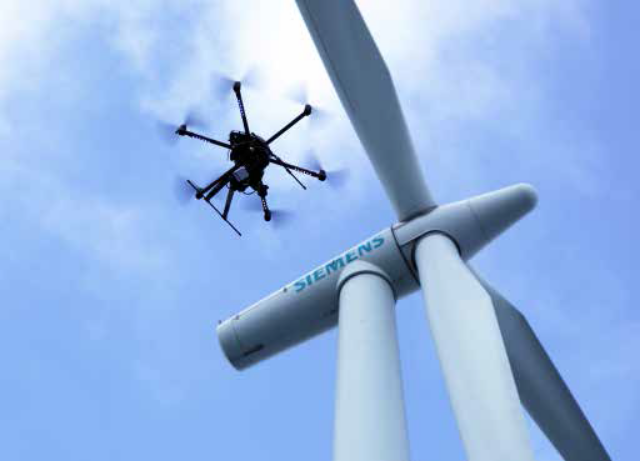The use of unmanned aerial vehicles to inspect wear and tear on wind turbines is coming into its own, and may well be a $6 billion business by 2024, Navigant Research reports.
In a new analysis, “Unmanned Aerial Vehicles and Inspection Services for Wind Turbines: Global Market Assessment and Forecasts,” Navigant notes that by the beginning of this year, there were nearly 270,000 individual wind turbines operating globally.
The more than 800,000 blades spinning on these turbines are battered by the elements over time and gradually wear out. Deterioration can cause reduced energy production in early stages and catastrophic and costly blade collapse if left unnoticed.
This, Navigant says, is driving a brisk business in wind turbine blade inspections, a role that has traditionally been accomplished from the ground with simple visual inspections or more complicated and risky rope or platform access. A new approach using unmanned aerial vehicles (UAVs), commonly known as drones, is rapidly muscling in as a middle option, according to the research firm.
UAVs are proving to be more than a novelty. Commercial-grade UAVs handled by professional operators can provide higher-resolution visual inspections than ground-based inspections. They also provide an inspection that is quicker, easier, and less costly and risky than rope access techniques.
Multi-rotor UAV units with robust stability in strong winds, strong battery life, and sharp optics are essential. Equally important is the integration of data analysis systems and inspection services that can help automate data processing and analysis to mitigate the photo fatigue that can occur photographing, analyzing, and cataloging vast blade surface image data across fleets of wind turbines, Navigant says.
Source: Renewable Energy Magazine

